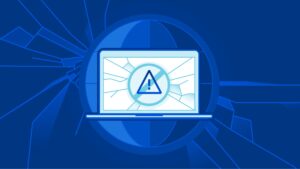The mixture of the rise in the number of devices on the internet and the current pandemic situation has created a new gap for hackers to steal sensitive information by making a backdoor exploit. Since the situation demands a serious and quick action, it’s important that you adopt the following techniques to make your organization more secured and better prepared.
But first things first, what is the most common backdoor that hackers use? The answer to this question is a default or a weak password – system password, router password, as well as social media account passwords. These are the kinds of backdoors that should be locked with the help of a strong password to keep hackers out of a system.
How to Make a Strong Backdoor Password?
The different tactics that can make a password strong enough to thwart off hacking attempts have been listed below. Have a look at the entire information that you have at your disposal.
- Unpredictability is the First Requirement
The first thing that a hacker will do is guess. If you’ve used common words like your name, your parents’ names, or even a combination of names and date of birth, all this is entirely predictable. These are the first things that hackers try. And trust us when we say this, they are extremely gifted people who can decode such combinations very easily.
Which is why unpredictability is the one thing that can make a hacker move along, leaving your system alone.
- Use random words that make no sense and hold no relevance in your life.
- Hodgepodge the random words even more by using uppercase letters, lowercase letters, symbols, and numbers.
- A long complicated password is a lifesaver. While it shouldn’t be less than 8 characters, it’s much much safer if you can make it at least 12 characters long.
- Keeping it Clean is the Important Part
Complicated passwords give you a stunning cover. But there are things that can still go wrong in a number of ways.
- Using an unprotected public Wi-Fi will put your complicated password at risk.
- Sharing the password with others increases the chances of the password getting leaked by 10 times.
While you should avoid both the mistakes mentioned above, still, why take a chance?
- Make a new and a different password for every system you have and every account you use.
- Put those passwords in a password management application.
Precisely, do whatever you can to make sure that the password doesn’t leak and in case one of the passwords gets compromised, the others are still safe.




